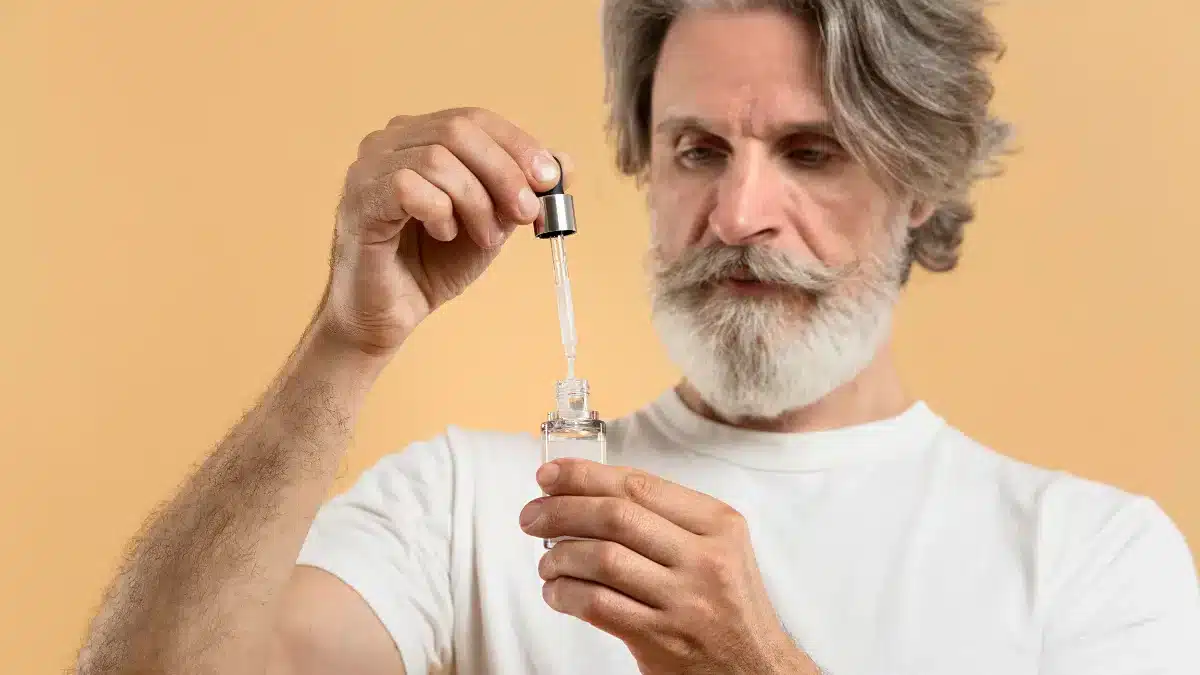Minoxidil for Telogen Effluvium: Will it Work?
Telogen Effluvium (TE) is a common hair loss condition characterized by excessive hair shedding due to a disruption in the hair growth cycle.
It can be triggered by various factors such as stress, hormonal imbalances, nutritional deficiencies, childbirth, surgery, or certain medications.
Although there’s no definitive proof that topical minoxidil promotes hair recovery in TE, it is considered safe and has potential benefits.
Patients who want to participate in their treatment actively may opt to use Minoxidil.
In this article, we will delve into the efficacy of Minoxidil for Telogen Effluvium and answer some common questions related to its use.
Minoxidil and its working
Minoxidil is a vasodilator medication initially developed to treat high blood pressure.
However, an unexpected side effect was noticed during its use: increased hair growth.
As a result, Minoxidil was reformulated as a topical solution for hair loss conditions.
Topical Minoxidil was then FDA-approved for promoting hair growth in Androgenetic Alopecia.
This medication for treating hair loss works by dilating blood vessels around hair follicles, increasing nutrient and oxygen supply to the hair roots.
This stimulation helps promote hair regrowth in individuals experiencing hair loss or thinning.
Even though Oral Minoxidil for Telogen Effluvium is an off-label alternative for treating the condition.
However, check with your doctor before trying any treatment, as there may be major side effects.
Can Minoxidil be used for Telogen Effluvium
Yes, Minoxidil can be used for Telogen Effluvium.
It has been considered a potential treatment option for this condition due to its ability to stimulate hair follicles and promote hair growth.
However, it is essential to remember that Minoxidil is not a cure for Telogen Effluvium, and its effectiveness may vary from person to person.
The efficacy of Minoxidil for Telogen Effluvium has been a subject of study and debate among researchers.
Some studies have suggested that Minoxidil can help promote hair regrowth in people with TE.
The effectiveness of the treatment may depend on various factors.
These factors include the underlying cause of Telogen Effluvium, the severity of the condition, and individual response to the medication.
Oral Minoxidil for Telogen Effluvium

In addition to topical Minoxidil, oral Minoxidil has also been explored as a potential treatment for Telogen Effluvium.
Oral Minoxidil is generally used to treat severe hypertension and is not approved for hair loss conditions.
It is used off-label for Telogen Effluvium.
It should only be considered under the supervision of a healthcare professional due to the risk of side effects and complications associated with oral administration.
How long should Minoxidil be used?
The duration for which Minoxidil should be used for Telogen Effluvium may vary depending on the individual’s response to the treatment.
In most cases, it is recommended to use Minoxidil consistently for at least four months to a year to determine its effectiveness.
Being patient during this period is essential, as hair regrowth may take time.
If there are no visible improvements after four months, it may be advisable to discontinue Minoxidil and ask for alternative treatments from your doctor.
Is Minoxidil Suitable for Everyone with Telogen Effluvium?
Minoxidil may not be suitable for everyone with Telogen Effluvium.
It is essential to consider individual factors such as age, medical history, and other medications being taken before using Minoxidil.
Pregnant or breastfeeding women, individuals with certain medical conditions, and those taking specific medications should be cautious.
It is important to consult a healthcare professional before using Minoxidil.
Also Read: Guide to the Telogen Effluvium Diet. Battle hair loss on all fronts.
Conclusion
Minoxidil can help with hair regrowth in Telogen Effluvium, but it’s not a cure.
Results may vary from person to person, so be patient and use it consistently for at least four months.
Oral Minoxidil for Telogen Effluvium is not specifically for hair loss and should only be used under medical supervision.
Consult a healthcare professional before using Minoxidil, especially if pregnant, breastfeeding, or with certain medical conditions or medications.
Approach Minoxidil with realistic expectations and follow medical guidance for safe and effective treatment.
Frequently Asked Questions
Can Minoxidil treat Telogen Effluvium?
Yes, Minoxidil can be used as a treatment for Telogen Effluvium. It has shown promise in promoting hair regrowth by stimulating hair follicles and increasing nutrient supply to the hair roots. However, its effectiveness may vary from person to person, and it is not a cure for the condition.
How long should I use Minoxidil for Telogen Effluvium?
It is generally recommended to use Minoxidil consistently for at least four months to a year to determine its effectiveness for Telogen Effluvium. Hair regrowth may take time, so patience is essential. If there are no visible improvements after four months, consider alternative treatments with medical guidance.
Does Minoxidil stop telogen?
Minoxidil does not stop the telogen phase of the hair growth cycle. Instead, it promotes hair regrowth by stimulating hair follicles and encouraging the transition from the telogen phase to the anagen (growth) phase. It helps reverse hair loss caused by Telogen Effluvium and other hair loss conditions.
Does Minoxidil shorten telogen phase?
There is no evidence to suggest that Minoxidil shortens the telogen phase of the hair growth cycle. Minoxidil primarily promotes hair regrowth during the anagen (growth) phase and does not directly impact the length of the telogen phase.
WowRx uses only high-quality sources while writing our articles. Please read our content information policy to know more about how we keep our content reliable and trustworthy.






